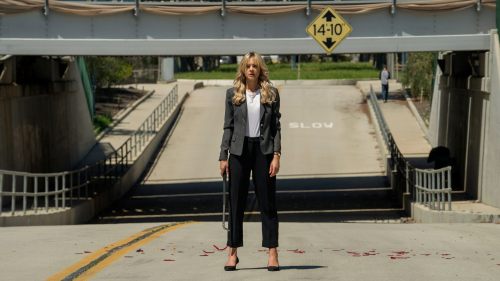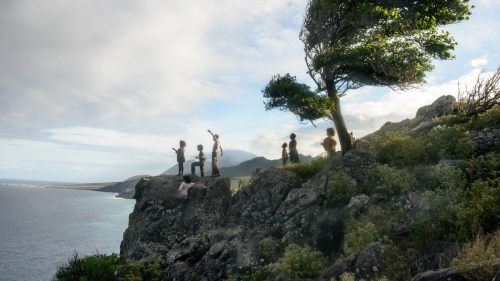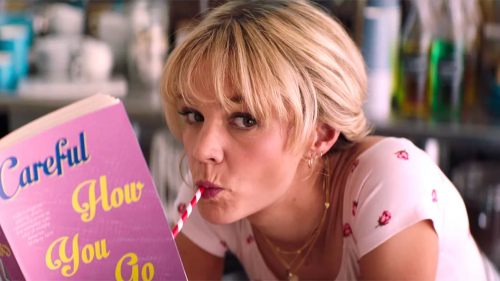Sundance Review: THE PAINTER AND THE THIEF - An Unlikely Tale That Goes Unlikely Places
If The Painter and the Thief were a feature film, we’d call its narrative unrealistic. As a doc, it feels like the kind of story you only find in movies. I believed what the film showed me, but it wasn’t always easy.
A painter named Barbora Kysilkova creates two masterpieces and puts them on display in a storefront while awaiting her art show where they’re expected to sell for a large amount of money. Instead they are stolen. We actually get to see the theft on multiple security cameras. The thieves are apprehended, but the paintings cannot be found.
So the painter begins speaking with one of the thieves, Karl-Bertil Nordland, and cultivates a friendship with him - first out of curiosity, later to use him as a subject, and eventually out of a (platonic?) love that borders on obsession.
Within that framework, there is a ton going on with this film. Essentially, The Painter and the Thief is a character study between two deeply intriguing figures who only become more intriguing as time goes by and their relationship strengthens. This isn’t necessarily a film about dramatic events, though there are a couple, but rather the incremental peeling of two people’s layers while also witnessing the core truths at their centers evolve or devolve as time goes by. It’s a fascinating thing to behold.
Barbora at first seems somewhat straight-laced. She’s an artist, sure, but she appears to be well-off financially and has a loving partner. When she first meets up with Karl, it feels as though she is slumming it and we slightly sense her attraction to the danger involved.
Karl is not just a thief but a heroin addict. Gaunt and covered in prison tattoos, we first see him in the form of what look like courtroom drawings, offering us an overly simple look at him before we even see him in the flesh. When we do, he seems uncomfortable and nervous and maybe a little bit manipulative. At one point early on, he dons a shirt that simply states “Crime Pays”.
These are only our first impressions, however. Karl starts to reveal himself almost immediately as something more than expected. We see his home, which features a surprisingly well-cultivated art collection. We hear more of his remarkable past before a life of crime took over. It becomes clear that Karl is extremely intelligent. “She sees me,” he says of Barbora, “But she doesn’t now that I see her too.” He’s right. But this line also implies a third character at play: the filmmakers themselves.
I will never totally be comfortable with the reality of The Painter and the Thief. Part of that is a byproduct of its gorgeous cinematography, which looks cinematic and dynamic at all times (this is a full fly-on-the-wall doc, no talking heads). Furthermore, the sheer language in the film feels heightened, I suppose because its subjects are so intelligent; we witness fights and exchanges that simply could not have been written better, which automatically makes it feel written. But above all there is Karl, who - especially in the film’s first half - I do not fully trust to be genuine. None of this is a complaint or an accusation - it’s all part of what makes The Painter and the Thief such an intriguing puzzle. I was probing this film and asking questions of it far more than I normally would. It’s possible that thinking it through provides more entertainment than the film itself.
The Painter and the Thief generates a few different forms of tension early on. Karl might be dangerous. Barbora might be irresponsible. Meanwhile, the two share a romantic tension while also having significant others. Remarkably, most of this dissipates without climax for what turns out to be yet another layer of unexpected story, which is simply a meditation on rehabilitation and forgiveness. For as much as the documentary appears to defy realism, whatever its driving narrative was succumbs to the fact that people can sometimes surprise you if you give them a chance.
I found a lot to love about The Painter and the Thief and even more to think about after the film ended, which is a real gift. The most intriguing part is that while the film eventually does end, the story of Barbora and Karl does not. Who knows where their relationship has taken them in the time since this was filmed? I would be very interested to find out.



